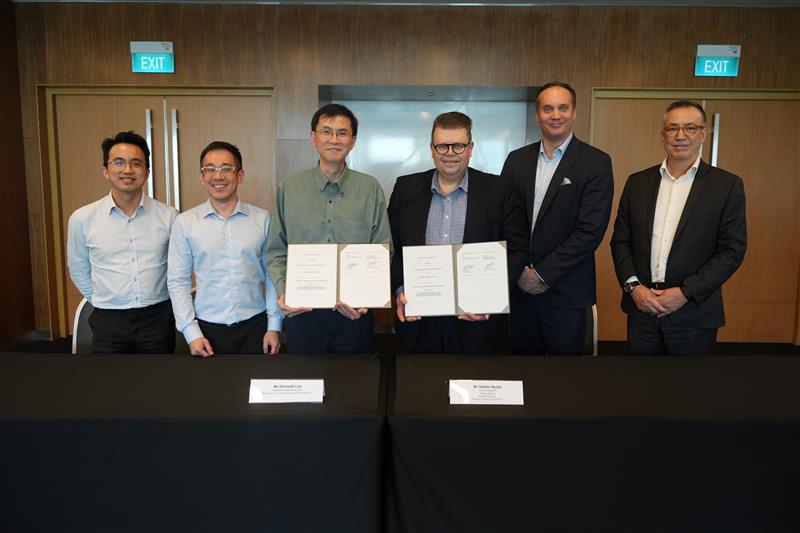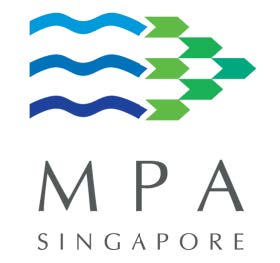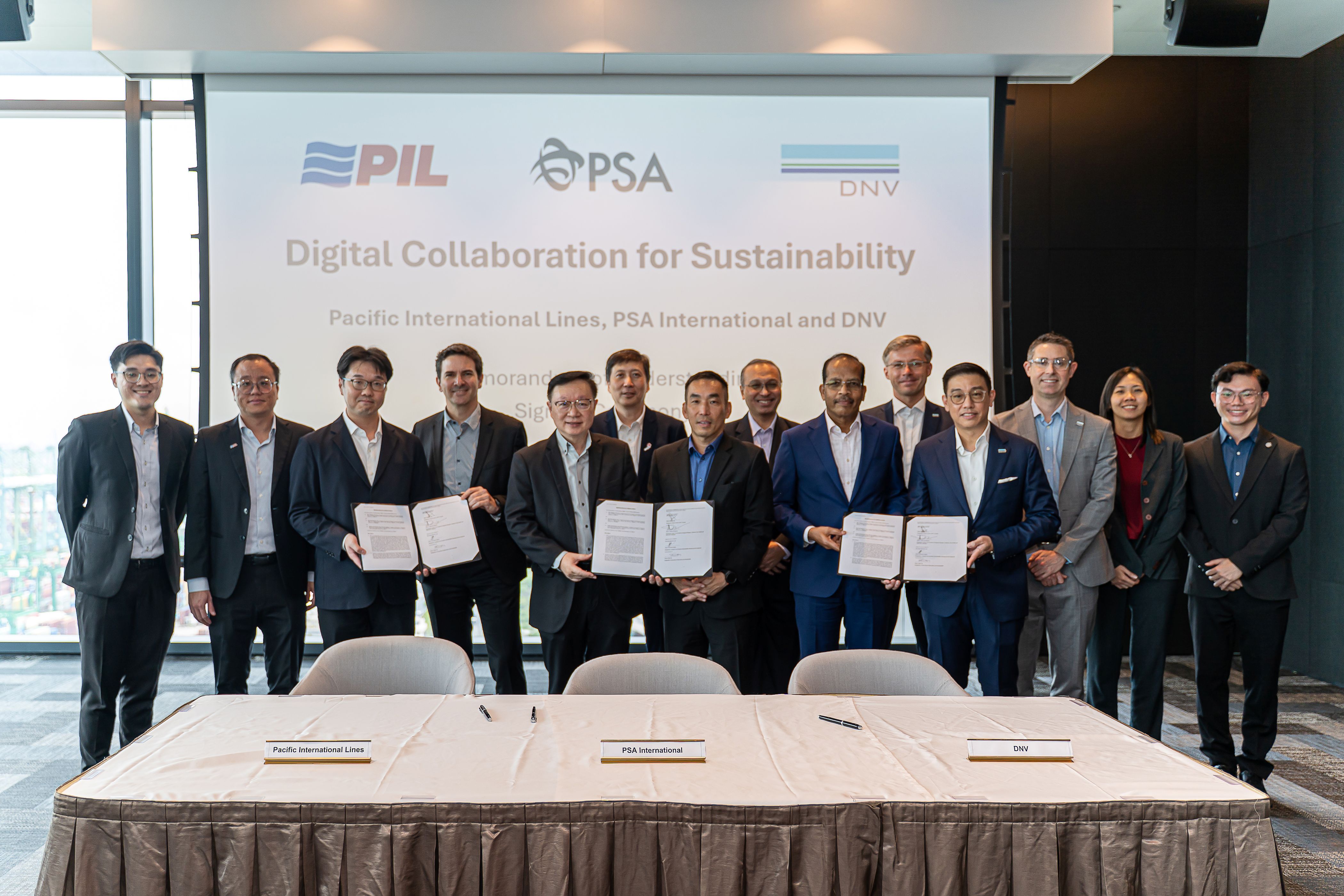Marine Environment Protection Committee (MEPC) - 78th session, 6-10 June 2022
IMO's Marine Environment Protection Committee has reiterated its commitment to review and strengthen the IMO Initial Strategy on the reduction of GHG emissions from shipping, with a view to adopting a revised strategy in mid-2023.
The MEPC 78 session (6-10 June) made further progress with the discussions towards the revision of the Initial GHG Strategy, as initiated during the last session (MEPC 77). The revision will take into account the commitment to strengthen the levels of ambition of the Initial Strategy and the needs of developing States, in particular small island developing States (SIDS) and least developed countries (LDCs).
Further work will continue in an intersessional GHG working group (ISWG-GHG 13) before the next session (MEPC 79, 12-16 December 2022) and further sessions of the working group, including two meetings of intersessional GHG working group are planned prior to MEPC 80 in order to keep up the momentum.

Developing a basket of mid-term GHG reduction measures
The MEPC noted the progress made by the Intersessional Working Group on Reduction of GHG Emissions from Ships (
ISWG-GHG 12) in advancing towards the further development of a "basket of candidate mid-term measures" – integrating various technical elements (for example, a GHG fuel standard and/or enhancement of IMO's carbon intensity measures) and carbon pricing elements (for example, a market-based measure).
The MEPC noted the need for additional information on the proposed mid-term measures. It encouraged proponents of measures to work together intersessionally with a view to exploring how different elements of these proposals could be combined in the context of a basket of mid-term GHG reduction measures. Member States and international organizations were invited to submit new documents to a future session of ISWG-GHG, including refined proposals to that purpose.
The intersessional working group (ISWG-GHG 13) will further consider the proposed measures.
Guidelines adopted to support short-term measure
The MEPC adopted a series of guidelines to support the implementation of the
short-term measure to reduce ships' carbon intensity in accordance with the timelines set out in the Initial IMO GHG Strategy. The short-term measure enters into force on 1 November 2022 and introduces the Energy Efficiency Existing Ship Index (EEXI); the annual operational carbon intensity indicator (CII) rating and an enhanced Ship Energy Efficiency Management Plan (SEEMP). The guidelines include those relating to method of calculation of the EEXI, the revised SEEMP and possible correction factors for CII.
The MEPC also approved draft amendments to appendix IX of MARPOL Annex VI on the reporting of EEXI and CII values to the IMO Data Collection System (DCS). The Committee further agreed to include a new workstream on further revision of the IMO DCS in the agenda of ISWG-GHG 13.
Meanwhile, the intersessional working group (ISWG-GHG 13) is also instructed to complete the lessons-learned exercise of the comprehensive impact assessment of the short-term measure, and in particular finalize the review of the
Procedure for assessing impacts on States of candidate measures (MEPC.1/Circ.885), to be approved by MEPC 79.
Development of life-cycle guidelines
The MEPC noted the discussion in the ISWG -GHG 11 on the progress made in the development of draft guidelines on lifecycle GHG/carbon intensity for marine fuels (LCA guidelines) and established a correspondence group on marine fuel lifecycle GHG analysis to further the work. The correspondence group will submit an interim report to MEPC 79, and final draft guidelines to be adopted by MEPC 80. The LCA guidelines will allow for a Well-to-Wake calculation, including Well-to-Tank and Tank-to-Wake emission factors, of total GHG emissions related to the production and use of alternative marine fuels.
Mediterranean Sea Emission Control Area for Sulphur Oxides approved
The MEPC agreed to designate the entire Mediterranean Sea as an emission control area, meaning that ships will - from 2025 - have to comply with more stringent controls on sulphur oxide emissions. In a SOx-ECA, the limit for sulphur in fuel oil used on board ships is 0.10% mass by mass (m/m), while outside these areas the limit is 0.50% m/m.
The MEPC approved proposed amendments to MARPOL Annex VI, with a view to adoption at MEPC 79, which will designate the Mediterranean Sea, as a whole, as an Emission Control Area for Sulphur Oxides (SOx-ECA) and particulate matter. The amendment could enter into force in mid-2024, with the new limit taking effect from 2025.
There are currently four designated SOx-ECAs worldwide: the Baltic Sea area; the North Sea area; the North American area (covering designated coastal areas off the United States and Canada); and the United States Caribbean Sea area (around Puerto Rico and the United States Virgin Islands).
BWM Convention experience-building phase and application
The Ballast Water Management Convention (
BWM) has been in force since 2017 and aims to prevent the spread of invasive aquatic species in ballast water. In 2017, MEPC 71 established the experience‑building phase (EBP) associated with the BWM Convention (
resolution MEPC.290(71)), in order to carry out a systematic and evidence-based review of the BWM Convention, potentially leading to review of the Convention and development of a package of amendments. Following consideration of the data analysis report on the EBP, the MEPC agreed in principle to develop a BWM Convention Review Plan (CRP) and established a Correspondence Group on Review of the BWM Convention to finalize the CRP.
The MEPC also approved revised Guidance on methodologies that may be used for enumerating viable organisms for type approval of ballast water management systems (BWM.2/Circ.61/Rev.1), and guidelines for re-evaluations in cases where modifications have been made to a ballast water management system, for inclusion as a new chapter 12 in the revised Methodology for information gathering and conduct of work of the GESAMP-Ballast Water Working Group (BWM.2/Circ.13/Rev.5).
Discharge water from exhaust gas cleaning systems (EGCS) – guidelines approved
IMO's the Sub-Committee on Prevention of Pollution (
PPR) has been considering issues related to discharge from exhaust gas cleaning systems (EGCS). The MEPC approved:
·MEPC Circular on 2022 Guidelines for risk and impact assessments of the discharge water from exhaust gas cleaning systems, to provide information on recommended methodology for risk and impact assessments that Member States should follow when considering local or regional regulations to protect the sensitive waters/environment from the discharge water from EGCS.
·MEPC Circular on 2022 Guidance regarding the delivery of EGCS residues to port reception facilities, providing best practices intended to assist both ship operators and port States in assuring the proper management and disposal of EGCS residues and stored discharge water from EGCSs into port reception facilities.
Fuel flashpoint in Bunker delivery note - amendments approved
The MEPC approved draft amendments to appendix V of MARPOL Annex VI, for adoption by MEPC 79, to include flashpoint of fuel oil or a statement that the flashpoint has been measured at or above 70ºC as mandatory information in the bunker delivery note (BDN).
Marine litter: Mandatory garbage record books for smaller ships approved
The MEPC approved draft amendments to MARPOL Annex V, to make the Garbage Record Book mandatory also for ships of 100 gross tonnage and above and less than 400 gross tonnage, with a view to subsequent adoption.
Marine litter: marking of fishing gear
The MEPC noted the ongoing work in the PPR Sub-Committee on marking of fishing gear, which has been identified as a key action in order to reduce marine plastic litter from lost, abandoned and otherwise discarded fishing gear.
Following discussion, the MEPC instructed the Sub‑Committee to develop draft amendments to MARPOL Annex V and associated guidelines to make the marking of fishing gear mandatory, using a goal-based approach.
As a short-term measure, the Committee instructed the PPR Sub‑Committee to develop an appropriate MEPC circular to promote the implementation of fishing gear marking systems and the FAO Voluntary Guidelines for the
Marking of Fishing Gear.
In 2021, MEPC 77 adopted the Strategy to address marine plastic litter from ships, which sets out to the following outcomes as key goals: reduction of marine plastic litter generated from, and retrieved by, fishing vessels; reduction of shipping's contribution to marine plastic litter; and improvement of the effectiveness of port reception and facilities and treatment in reducing marine plastic litter. Actions have been agreed, to be completed by 2025, which relate to all ships, including fishing vessels. The action plan supports IMO's commitment to meeting the targets set in the UN 2030 Sustainable Development Goal 14 (SDG 14) on the oceans.
GloLitter Partnerships, a project between the Government of Norway, IMO and FAO is supporting developing countries, including Small Islands Developing States (SIDS) and Least Developed Countries (LDCs), in identifying opportunities for the prevention and reduction of marine litter.
Adoption of amendments (watertight doors, GESAMP Hazard Evaluation Procedure)
The MEPC adopted the following amendments to:
·MARPOL Annex I and the International Code for the Construction and Equipment of Ships Carrying Dangerous Chemicals in Bulk (IBC Code) in relation to watertight doors, with an expected entry into force date of 1 January 2024 and 1 July 2024, respectively; and
·MARPOL Annex II, updating the abbreviated legend to the revised GESAMP Hazard Evaluation Procedure, with an expected entry into force date of 1 November 2023.
Protecting seas in the Arctic - regional arrangements for port reception facilities
The MEPC approved, for subsequent adoption, draft amendments to the MARPOL annexes to allow States with ports in the Arctic region to enter into regional arrangements for port reception facilities. The draft amendments relate to MARPOL Annexes I (oil), II (noxious liquid substances), IV (sewage), V (garbage) and VI (air pollution). Related draft amendments to the 2012 Guidelines for the development of a regional reception facility plan (resolution MEPC.221(63)) were also agreed.
Revision of the Anti-fouling Systems Convention - guidelines adopted
The MEPC adopted revised guidelines to support implementation of the AFS Convention, following the adoption, in 2021, of amendments to include controls on the biocide cybutryne. The amendments enter into force on 1 January 2023. The consequential revisions relate to:
·Guidelines for brief sampling of anti-fouling systems on ships;
·Guidelines for inspection of anti-fouling systems on ships; and
·Guidelines for survey and certification of anti-fouling systems on ships.
Unified interpretations of provisions of IMO environment-related conventions approved
The MEPC approved:
·unified interpretation of appendix I to the BWM Convention (Form of International Ballast Water Management Certificate), concerning the principal ballast water management method(s) employed on the ship;
·unified interpretation on the application of regulation 18.3 MARPOL Annex VI to biofuels.
·revised unified interpretation of paragraph 4.4.6.1 of the NOx Technical Code 2008, to make the interpretation (see
MEPC.1/Circ.895) applicable to the "Engine Family" concept under certain circumstances.
Source: IMO
The opinions expressed herein are the author's and not necessarily those of The Xinde Marine News.
Please Contact Us at:
media@xindemarine.com



 Baltic Exchange launches new Fuel Equivalence Conve
Baltic Exchange launches new Fuel Equivalence Conve  21 Consecutive Years of QUALSHIP 21 Recognition for
21 Consecutive Years of QUALSHIP 21 Recognition for  MPA and Wärtsilä Renew Partnership to Drive Marit
MPA and Wärtsilä Renew Partnership to Drive Marit  MPA and Dalian Maritime University Renew Partnershi
MPA and Dalian Maritime University Renew Partnershi  PSA INTERNATIONAL, DNV AND PACIFIC INTERNATIONAL LI
PSA INTERNATIONAL, DNV AND PACIFIC INTERNATIONAL LI  INTERCARGO Reaffirms Call for Simplicity as IMO Cli
INTERCARGO Reaffirms Call for Simplicity as IMO Cli